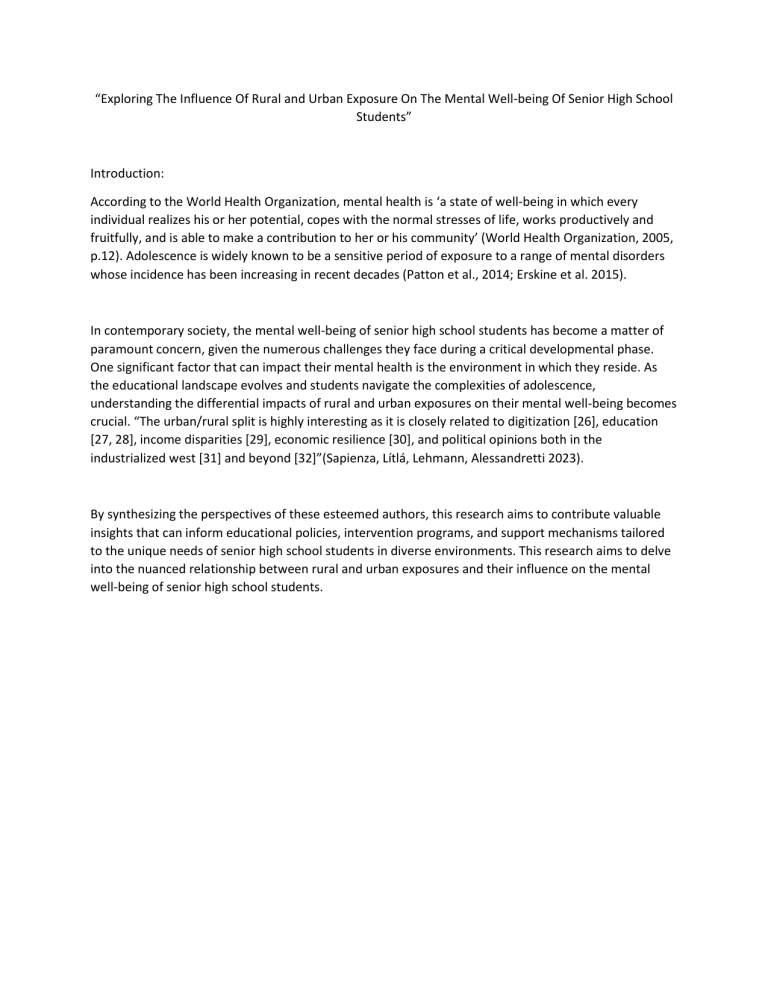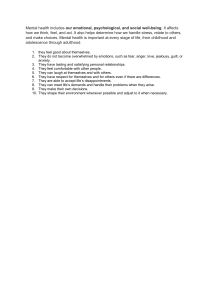
“Exploring The Influence Of Rural and Urban Exposure On The Mental Well-being Of Senior High School Students” Introduction: According to the World Health Organization, mental health is ‘a state of well-being in which every individual realizes his or her potential, copes with the normal stresses of life, works productively and fruitfully, and is able to make a contribution to her or his community’ (World Health Organization, 2005, p.12). Adolescence is widely known to be a sensitive period of exposure to a range of mental disorders whose incidence has been increasing in recent decades (Patton et al., 2014; Erskine et al. 2015). In contemporary society, the mental well-being of senior high school students has become a matter of paramount concern, given the numerous challenges they face during a critical developmental phase. One significant factor that can impact their mental health is the environment in which they reside. As the educational landscape evolves and students navigate the complexities of adolescence, understanding the differential impacts of rural and urban exposures on their mental well-being becomes crucial. “The urban/rural split is highly interesting as it is closely related to digitization [26], education [27, 28], income disparities [29], economic resilience [30], and political opinions both in the industrialized west [31] and beyond [32]”(Sapienza, Lítlá, Lehmann, Alessandretti 2023). By synthesizing the perspectives of these esteemed authors, this research aims to contribute valuable insights that can inform educational policies, intervention programs, and support mechanisms tailored to the unique needs of senior high school students in diverse environments. This research aims to delve into the nuanced relationship between rural and urban exposures and their influence on the mental well-being of senior high school students.




